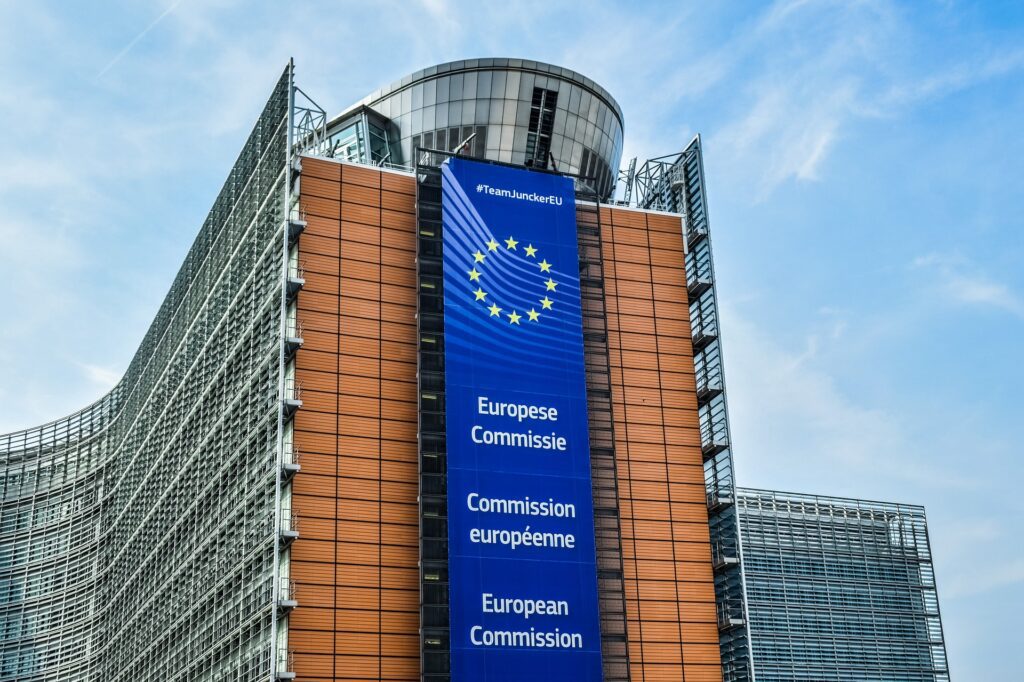The new plan to reform European Union pharmaceutical legislation falls short on data and market protections but includes positive efforts to streamline drug approval and support novel antimicrobials, according to a group of experts with the Biotechnology Innovation Organization (BIO).
“This is a clear signal that the European Union would like to evolve the way it regulates, to promote innovation in the sector,” said John Murphy, BIO Chief Policy Officer, adding that it is early in the legislative process to address specifics.
Still, it is worth highlighting some concerning provisions in this first draft, including barriers to market entry for SMEs and weaker intellectual property (IP) protections, said Murphy and other BIO experts.
The European Commission’s plan for “the largest reform in over 20 years” of EU pharma legislation contains changes like a reduced period of market exclusivity for new drugs and incentives for orphan drugs. The Commission proposal for the Pharmaceutical Directive and the Commission proposal for the Pharmaceutical Regulation were released April 26. The next day, the Commission released its proposal for protecting IP, with implications for the pharmaceutical industry.
The proposals contain bold strokes, and their ultimate impact depends on details to be worked out before approval by the EU Parliament and the European Council, as well as interpretation by the European Medicines Agency, the EU regulator.
BIO experts have been following development of the EU Pharmaceutical Directive for several years, working to ensure the final regulation will support innovation and patient access. They shared an early analysis of the European Commission’s initial proposal.
Positive steps to address AMR
The legislation includes a new Transferable Exclusivity Voucher (TEV) to encourage development of critically needed novel antimicrobials. New drugs to combat antimicrobial resistant infections are an urgent public health need but produce low sales, so the idea of a voucher in the EU setting to support drug research and development was welcomed by Emily Wheeler, BIO Director, Infectious Disease Policy.
“The voucher would grant an additional year of regulatory data protection awarded to a company developing an antimicrobial that meets certain criteria,” said Wheeler. Because antimicrobial drug sales are appropriately low, the voucher would be transferrable to another drug, or could even be sold.
Murphy questioned the strength of the incentive. “A company is still making a go-no-go decision in phase 1 clinical trials, saying ‘We still don’t see a market for this, even if we got a $50 million transferrable voucher,’” he said.
In contrast, a current U.S. proposal to encourage AMR drug development, the PASTEUR Act, would see the government providing “$750 million to $3 billion” for makers of approved new antimicrobials “and in exchange, their product would be available free of charge in federal health care settings,” Wheeler said.
“PASTEUR is our number one priority within the AMR space,” Wheeler emphasized. Still, she said, “We think that this voucher is a great step in the right direction.”
Orphan drugs and unmet needs
Another positive, if modest, development is assistance for orphan drugs treating rare diseases. The proposal gives these drugs an additional half year of “regulatory data protection and enhanced exclusivity,” according to Murphy. “So not necessarily the seven years you get in the United States, but I think it’s a clear signal for the desire to have orphan products protected.”
The proposed directive also gives incentives for novel drugs that address urgent unmet needs, but the benefits of that provision hinge on the final definition of drugs deserving support, according to Murphy.
Reduced exclusivity and challenges for SMEs
The exclusive period a new drug enjoys before competing generics and biosimilars can enter the market would be reduced from 10 years to eight years—six years of regulatory data protection plus a further two years of market protection.
Data protection periods could be increased in several ways, including “launching in all 27 EU markets at the same time, which is really hard for companies,” said Hilary Stiss, BIO Senior Manager for International Affairs, who is managing BIO’s response to the proposed EU legislation. “Small companies will not be able to do this on their own. They’ll have to partner in order to license. From our perspective, it’s really not achieving the goal of the pharma legislation, which was to expand access and spur innovation.”
Murphy said BIO would like to see the regulations made more welcoming to small businesses. “In principle incentives for continued innovation are not bad, as long as they are properly formulated so that all aspects of the ecosystem can take advantage of those incentives,” he said.
And Hans Sauer, BIO Deputy General Counsel and VP for Intellectual Property, noted that regulatory data protection periods “only protect against generic or biosimilar approvals.” As in the United States, the proposed EU “data protection doesn’t protect against emergency use listings during a public health emergency,” he said.
Compulsory licensing provisions inspired by TRIPS Waiver
When it comes to establishing market exclusivity, the plan to reduce regulatory data protection does significant harm, according to Justin Pine, BIO Sr. Director of International Affairs. But Pine also saw reason to be concerned about the expanded compulsory licensing measures, which essentially empower governments to allow manufacturers to produce drugs without the consent of the IP owner. The expanded compulsory licensing provisions would waive regulatory data protections in the event of a compulsory license and would also allow for exportation to other markets.
“The Commission, citing COVID as an example to learn from, seems to capitulate to some of the claims made during the TRIPS waiver debate and justify their view on the role, and apparent necessity, of compulsory licensing,” said Pine, referring to last year’s innovation-stifling move to reduce global IP protections for COVID vaccines through a waiver of key provisions in the World Trade Organization’s TRIPS agreement.
“More specifically, the Commission suggests there is a perceived need to use compulsory licensing measures to export certain drugs despite the abundant evidence globally that voluntary licensing is the most efficient tool to address global public health challenges and expand manufacturing,” Pine explained.
A signal for the U.S.
The EU was once the leader of global pharmaceutical development but lost its dominance in the 1980s when it instituted drug price controls that disincentivized innovation. That allowed the United States to assume global leadership in biotech, as a Vital Transformation report has explained.
Now China and other Asian countries are challenging U.S. market dominance, which has been weakened by new drug price controls that will stymie innovation, BIO experts noted. While the EU legislative package is not perfect, it does show a clear desire by Europe to regain its competitive position in the market.
“This is a signal that the European Community is looking towards the biotech industry as a potential jobs creator and capital formation creator in the sector and they also value the need to have more home development of novel medicines,” said Murphy. “It is a signal to the United States that it cannot simply sit around and continue to bash the industry and feel like we will retain those jobs and retain that investment here.”




